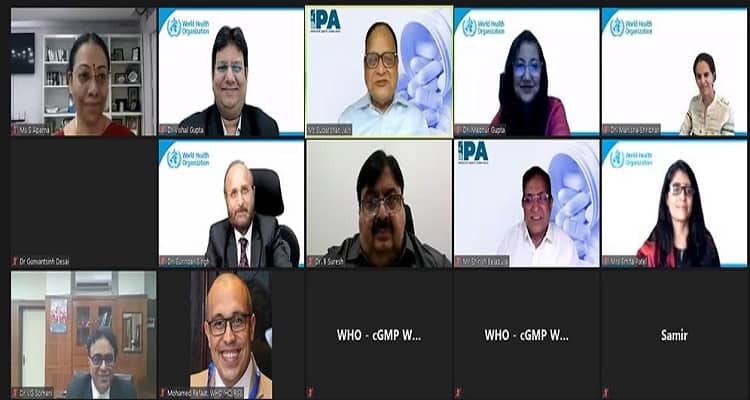Five institutions come together to organise virtual workshops series on GMP
The workshop series was conducted by the Ministry of Health, along with the Ministry of Chemicals and Fertilizers, the World Health Organization (WHO), the Indian Pharmaceutical Alliance and JSS Academy of Higher Education and Research
The Ministry of Health, along with the Ministry of Chemicals and Fertilizers, the World Health Organization (WHO), the Indian Pharmaceutical Alliance and JSS Academy of Higher Education and Research recently came together for a virtual workshop series on Good Manufacturing Practices (GMPs), a statement said.
It said that the workshop, which intended to support and build capacity in the quality management systems of Indian pharmaceutical industries with an aim of providing world-class quality medical products, was inaugurated by S Aparna, Secretary, Department of Pharmaceuticals, Ministry of Chemicals and Fertilizers, Government of India.
In her inaugural address, Aparna said, “These workshops have reinforced and enhanced the capacity and abilities of the Indian pharmaceutical sector, which has shown tremendous dedication for the cause of supplying quality medicines globally since the pandemic started. Their hard work and commitment have resulted in India being recognised as being the vaccine hub and pharmacy of the World. The workshops have recognised and identified some of the existing challenges and vulnerabilities, and have, in fact, addressed them, which reinforces the utility and the necessity of these series of workshops. This will have a far-reaching positive impact on enhancing the quality systems for production of high-quality APIs.”
Welcoming the capacity-strengthening workshops, Dr VG Somani, Drugs Controller General of India (DCGI), said, “The workshops have helped in creating awareness not only on the latest developments in GMP, but the entire product lifecycle of pharmaceuticals. The topics covered support the planned regulatory revisions for the Indian pharma sector and also support our constant endeavour that our standards are at par with the best in the world. Focus on R&D and innovation with a futuristic approach of incorporating digital technologies and AI in pharma sector in the elements of the workshops would definitely equip Indian pharma manufacturers with the advanced futuristic needs and developments.”
Further, speaking on the occasion, the WHO representatives from HQ, WHO Regional Office for South-East Asia, and WHO Country Office for India, said, “It is for the first time anywhere in the world that we have attempted a programme like this. It is a first-of-its-kind collaboration among the ministries, WHO, industry, academia and other stakeholders for fostering the quality and handholding of the pharma manufacturers.”
The genesis of these workshops is a survey of the pharmaceutical sector in India by WHO in 2014, which had recommended further strengthening of the cGMP with the support of WHO, said the statement.
Sudarshan Jain, Secretary General, Indian Pharmaceutical Alliance, said, “The success of the virtual workshops on cGMP is a true reflection of the highest levels of commitment, astute conceptualisation, meticulous planning and execution from the partners, and we are delighted to partner in this path-breaking programme.”
“It is a timely and much-needed initiative for the sector, especially at this crucial juncture,” he added.
Dr Surinder Singh, Vice Chancellor, JSS AHER, also said, “We are thankful to the health ministry, WHO, IPA and partners for providing this opportunity to partner with all of you and also conduct the programme. These workshops extend beyond the regular training and the concept of mentorship is implemented for the first time for pharma industries. To ensure long-term impact, a mentor will be guiding the participants for an informed understanding and implementation of WHO cGMP, pre-qualification guidelines and other world-class quality standards.”
The statement notified that under this initiative, a total of six workshops are being conducted – two for formulation manufacturing pharma units, three for active pharmaceutical ingredients (APIs) manufacturing units, and one for medical devices and IVD manufacturers. Cumulatively, more than 1,000 participants from over 300 units have taken part in this capacity-strengthening programme.


